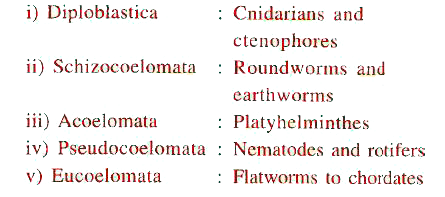Which of the following is correct?
The sum of mole fractions of all the components in a solution is always unity
Mole fraction depends upon temperature
Mole fraction is always negative
Mole fraction is independent of content of solute in solution
The correct Answer is:A
To solve the question, we need to analyze the statements provided regarding mole fractions in a solution. Let's break it down step by step.
1. Understanding Mole Fraction:
- The mole fraction of a component in a solution is defined as the ratio of the number of moles of that component to the total number of moles of all components in the solution.
- For a solution with solute (A) and solvent (B), the mole fractions can be expressed as:
- Mole fraction of A (XA) = nA / (nA + nB)
- Mole fraction of B (XB) = nB / (nA + nB)
2. Sum of Mole Fractions:
- If we add the mole fractions of both components:
- XA + XB = (nA / (nA + nB)) + (nB / (nA + nB))
- This simplifies to (nA + nB) / (nA + nB) = 1
- Thus, the sum of the mole fractions of all components in a solution is always equal to unity (1).
3. Analyzing the Statements:
- Statement 1: "The sum of the mole fraction of all the components in the solution is always unity."
- This statement is correct.
- Statement 2: "Mole fraction depends upon temperature."
- This statement is incorrect. Mole fraction is a ratio and does not depend on temperature.
- Statement 3: "Mole fraction is always negative."
- This statement is incorrect. Mole fractions range from 0 to 1 and cannot be negative.
- Statement 4: "Mole fraction is independent of the content of solute in solution."
- This statement is incorrect. Mole fraction is directly dependent on the amount of solute and solvent present.
4. Conclusion:
- The only correct statement is the first one: "The sum of the mole fraction of all the components in the solution is always unity."
Final Answer:
The correct option is Statement 1.
- The mole fraction of a component in a solution is defined as the ratio of the number of moles of that component to the total number of moles of all components in the solution.
- For a solution with solute (A) and solvent (B), the mole fractions can be expressed as:
- Mole fraction of A (XA) = nA / (nA + nB)
- Mole fraction of B (XB) = nB / (nA + nB)
- If we add the mole fractions of both components:
- XA + XB = (nA / (nA + nB)) + (nB / (nA + nB))
- This simplifies to (nA + nB) / (nA + nB) = 1
- Thus, the sum of the mole fractions of all components in a solution is always equal to unity (1).
- Statement 1: "The sum of the mole fraction of all the components in the solution is always unity."
- This statement is correct.
- Statement 2: "Mole fraction depends upon temperature."
- This statement is incorrect. Mole fraction is a ratio and does not depend on temperature.
- Statement 3: "Mole fraction is always negative."
- This statement is incorrect. Mole fractions range from 0 to 1 and cannot be negative.
- Statement 4: "Mole fraction is independent of the content of solute in solution."
- This statement is incorrect. Mole fraction is directly dependent on the amount of solute and solvent present.
- The only correct statement is the first one: "The sum of the mole fraction of all the components in the solution is always unity."
The correct option is Statement 1.
Topper's Solved these Questions
- SOME BASIC CONCEPT OF CHEMISTRYBOOK - AAKASH INSTITUTE ENGLISHCHAPTER - SOME BASIC CONCEPT OF CHEMISTRYEXERCISE - ASSIGNMENT( SECTION - A) Objective Type Questions
20 Videos
- SOME BASIC CONCEPT OF CHEMISTRYBOOK - AAKASH INSTITUTE ENGLISHCHAPTER - SOME BASIC CONCEPT OF CHEMISTRYEXERCISE - ASSIGNMENT( SECTION - B) Objective Type Questions
22 Videos
- SOME BASIC CONCEPT OF CHEMISTRYBOOK - AAKASH INSTITUTE ENGLISHCHAPTER - SOME BASIC CONCEPT OF CHEMISTRYEXERCISE - TRY YOURSELF
30 Videos
- SOLUTIONSBOOK - AAKASH INSTITUTE ENGLISHCHAPTER - SOLUTIONSEXERCISE - ASSIGMENT (SECTION-J) AAKASH CHALLENGERS QUESTIONS
10 Videos
- SOME BASIC CONCEPTS OF CHEMISTRY BOOK - AAKASH INSTITUTE ENGLISHCHAPTER - SOME BASIC CONCEPTS OF CHEMISTRY EXERCISE - ASSIGNMENT SECTION J (Aakash Challenges Questions)
10 Videos
Similar Questions
Which of the following are correct ?
View SolutionWhich of the following are correct reactions ?
View SolutionWhich of the following are correct processes ?
View SolutionWhich of the following are correct statements?
View SolutionWhich of the following are correct
View SolutionWhich of the following are correct ?

View SolutionWhich of the following are correct?
View SolutionWhich of the following are correct?
View SolutionWhich of the following are correct?
View SolutionWhich of the following are correct?
View Solution
